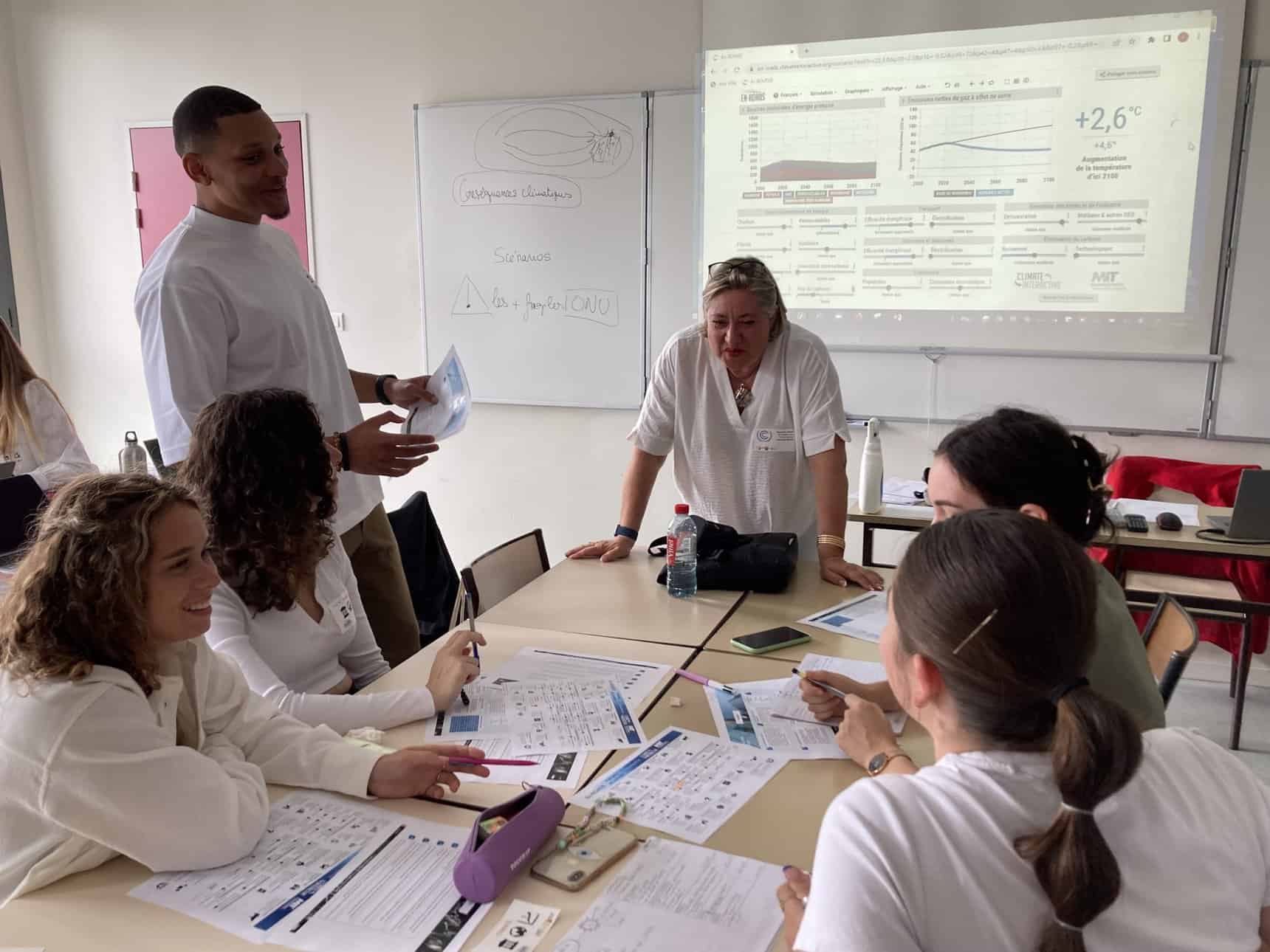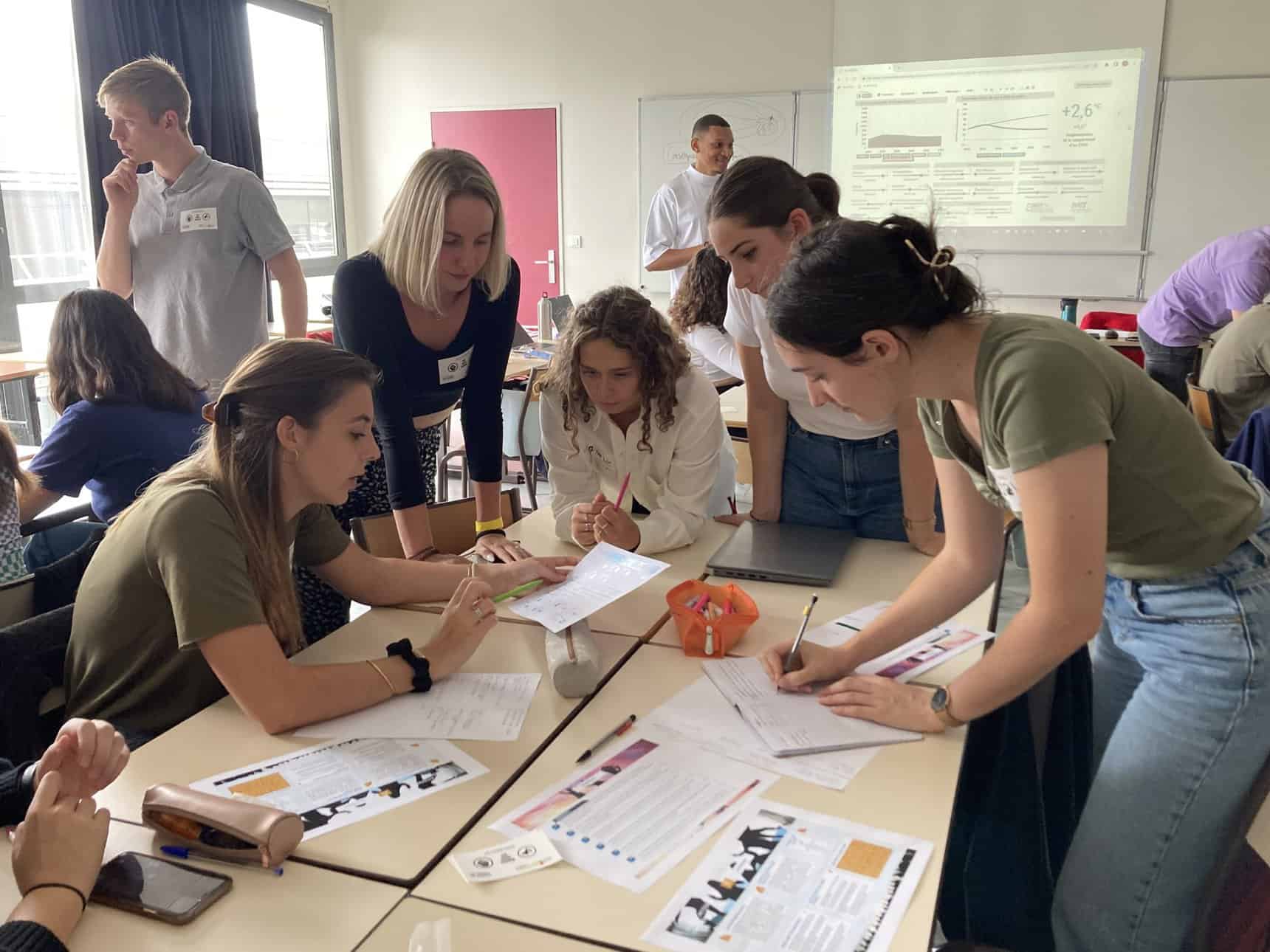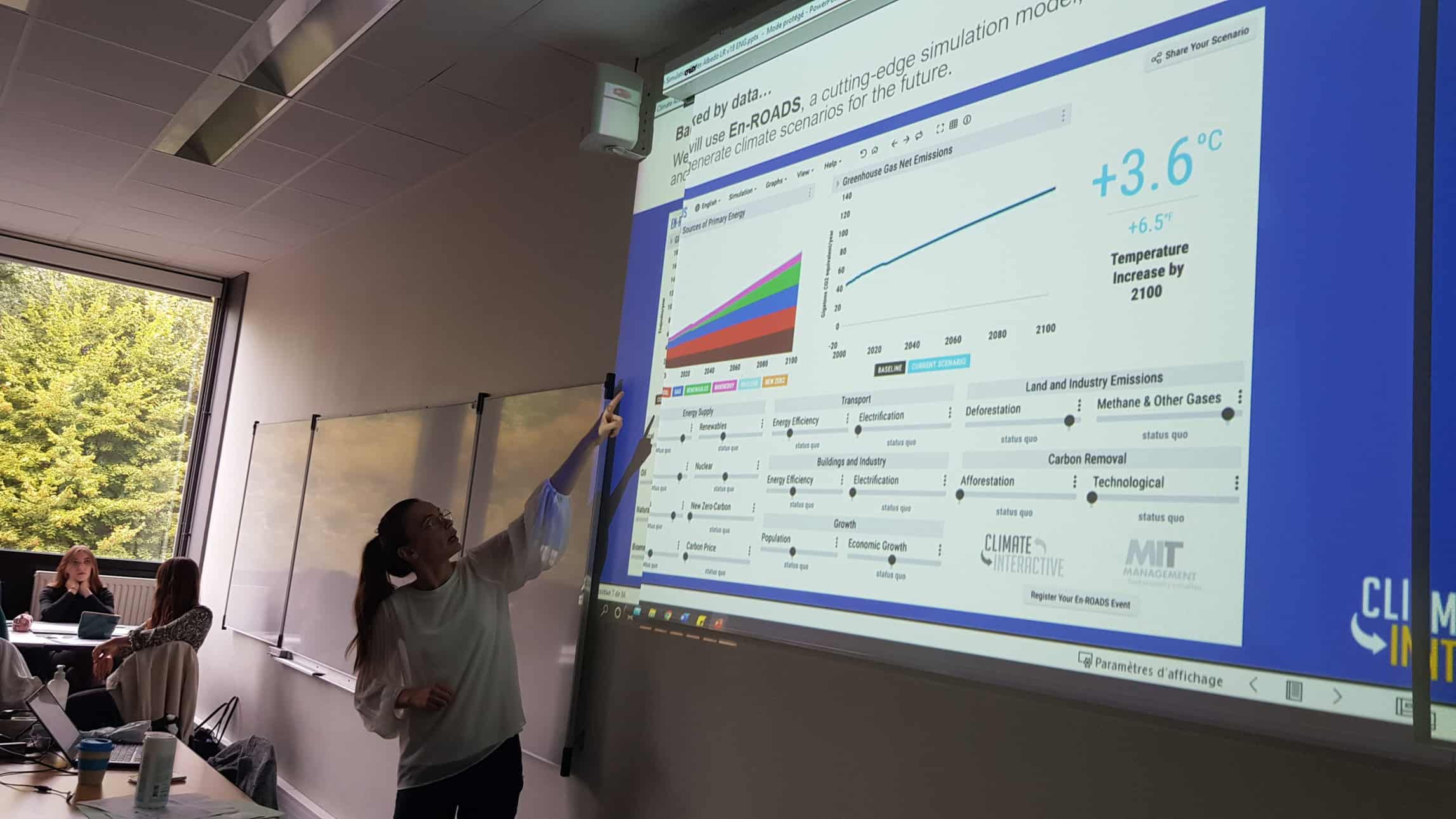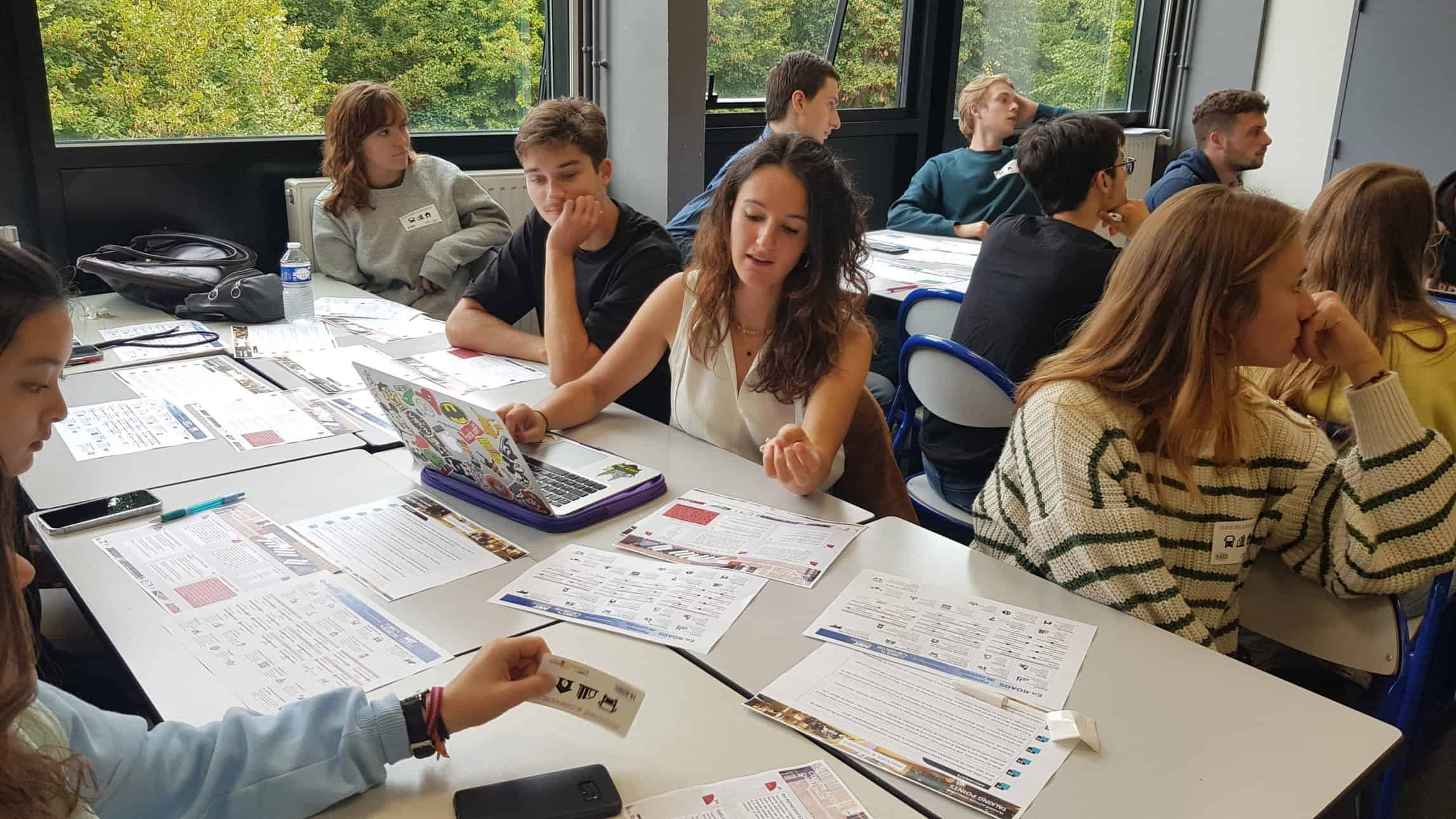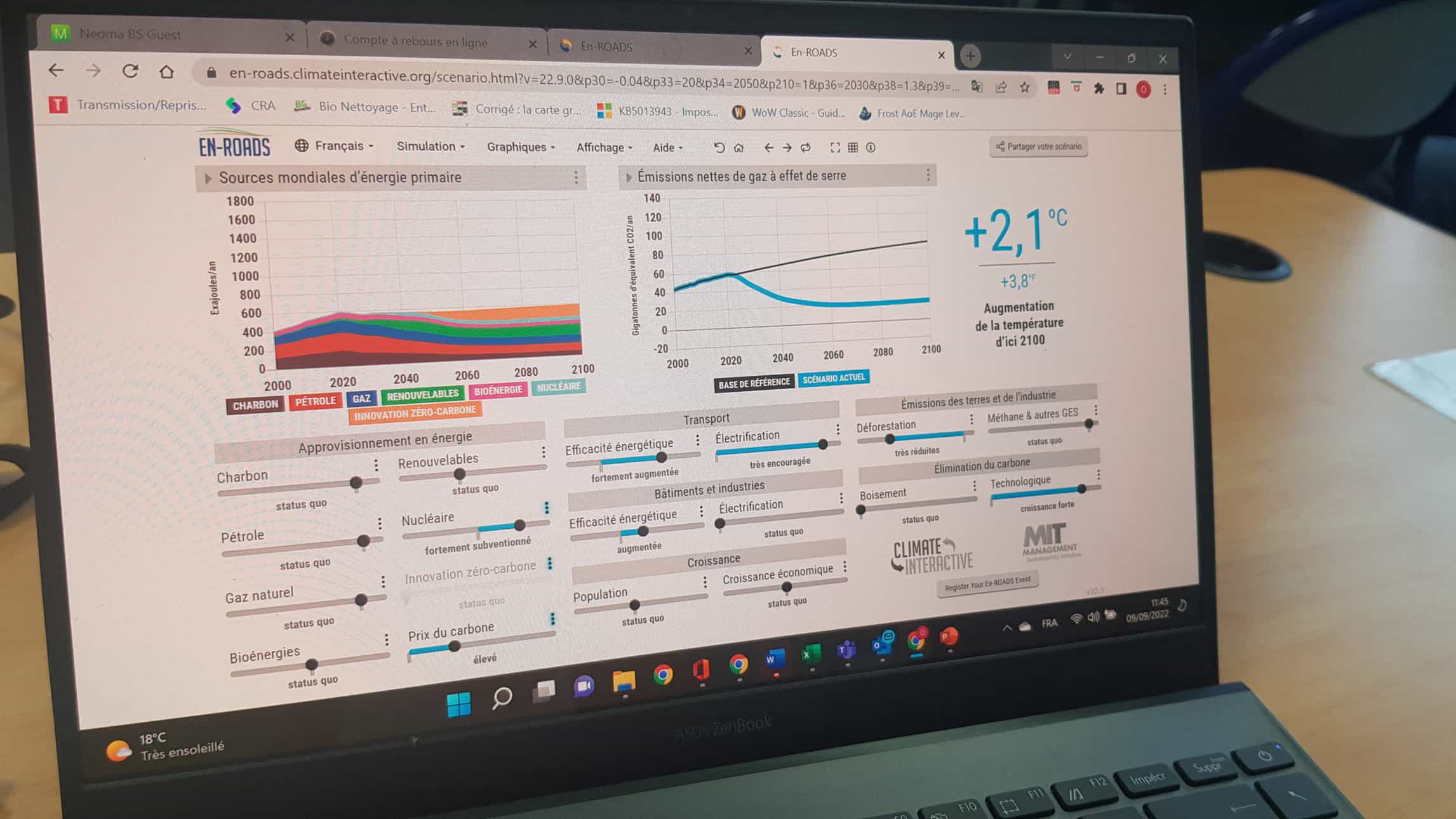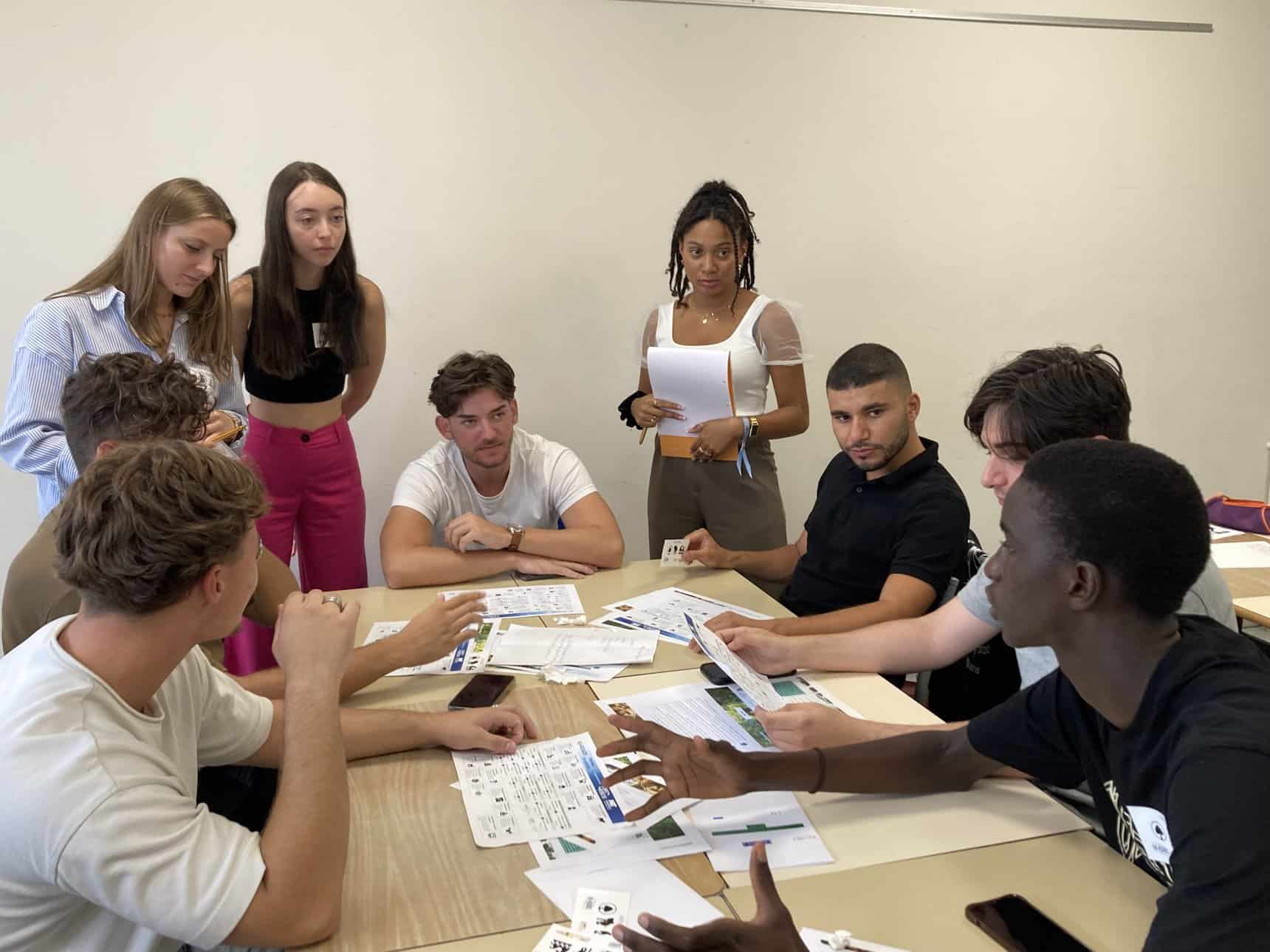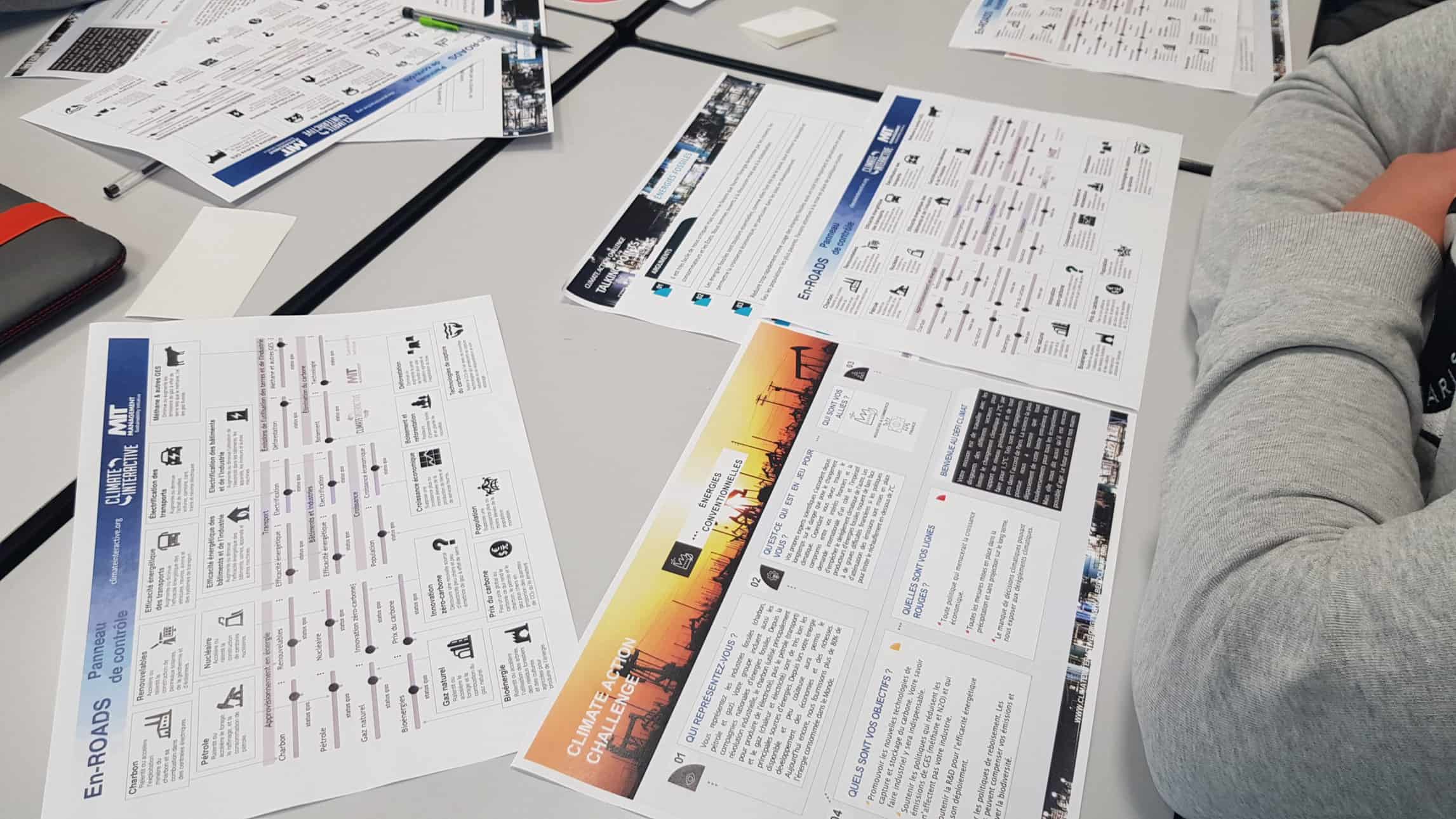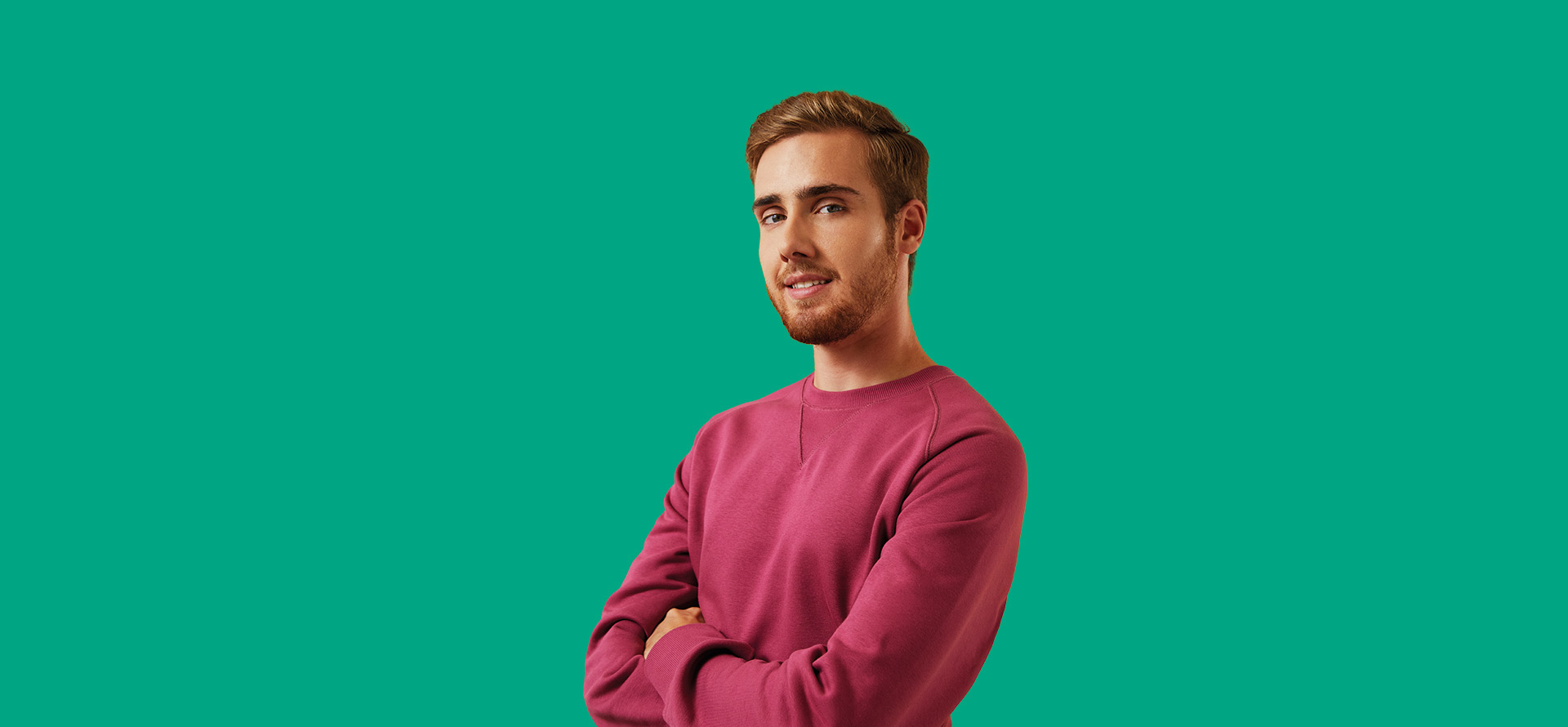Climate emergency: students looking for the best scenario
Published on 06/10/2023
Thematics :
Climate emergency: students looking for the best scenario
Published on 06/10/2023
Second-year students in the Master in Management programme started the year with a sustainable transition seminar. On the schedule was plenary conferences, round-table discussions, courses and, above all, a full-scale simulation game. Here’s a report on the instructive and immersive exercise from 9 September.
How do you limit global warming to less than two degrees by 2100? What can economic and political players do to contribute? What are the challenges, solutions and the balance among the interests of each stakeholder? All of these questions were a central component of a simulation exercise that all the second-year students participated in on 9 September.
In each class, there were six teams each representing an interest group (nature, conventional energy, youth, industry and commerce, the financial sector, carbon-free energy). In a role-playing game, these delegations had to come up with measures to reduce their impact, then negotiate them with the others.
“By discussing the issue together, the students looked for an energy transition plan that complied with the COP21 objectives,” said Laurent Richard, director of Albedo Climat, which offers courses based on climate and energy challenges. “Their decisions were then entered into the EN ROADS software that measures in real time their effect on global energy consumption, CO2 emissions and more.”
“This simulation provides insight into the subject’s complexity, the importance of different points of view and the challenges facing each party,” Laurent Richard said. “It helps students put aside their certainties and understand the wealth of solutions out there as well as the role of the financial sector, investments and companies in the ecological transition, which is important for business school students to understand.”
“I worked on the fossil fuel group and represented its industry. At the beginning, I did not think that we would find solutions that keep up production levels while responding to the climate challenges, and I learned that there are options: replanting trees, sequestering carbon-rich air in the ground, among others.
“But not all the solutions are black and white. Those that seem obvious are not really the viable ones. This simulation situates things in a more realistic context that is more practical and removed from clichés.
“Later on in our lives, we will hold management positions, and it’s important that we have this awareness and that it plays a role in our decision making.” Adrien, student on the Rouen campus
“I was able to measure the concrete aspects of global warming, test solutions and readjust them according to the results. I gained a better understanding of the cross-sectional aspect hidden behind climate change,” Léna, student on the Reims campus
“This exercise helped me to better grasp the implications of sustainable transition challenges. For example, there was a big debate in the simulation game about nuclear energy where each group had firm positions at the beginning and finally, as always, the discussion gave us insight into the point of view of others.” Jean, student on the Reims campus
“Through this simulation, I learned that there are more solutions than I first thought. Each interest group defended its proposals, but together we were able to find concrete measures. The delegations were not against one another.
“This knowledge will be important in my professional life. During the conferences and round tables, we saw it at every level of a company. You need to think about product sustainability. You can’t go on doing business any more as if it didn’t exist.” Manon, student on the Rouen campus
“Our desire is to give students the keys to a clear understanding of the complexity of these issues. We firmly believe that this lesson will give them educated opinions and positions on the possible options for better responding to the climate emergency,” said Diana Mangalagiu, professor at NEOMA Business School and seminar organiser.

